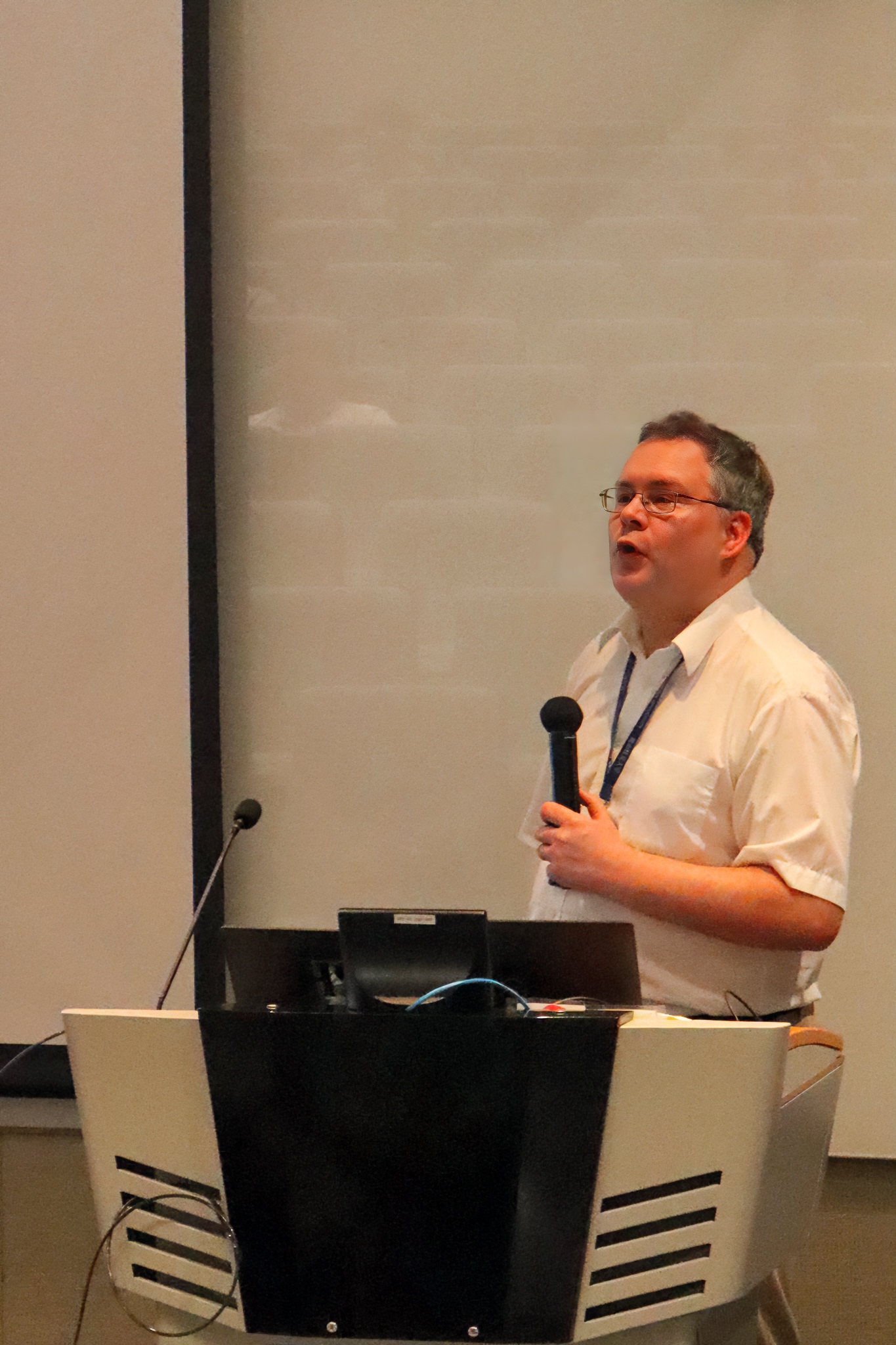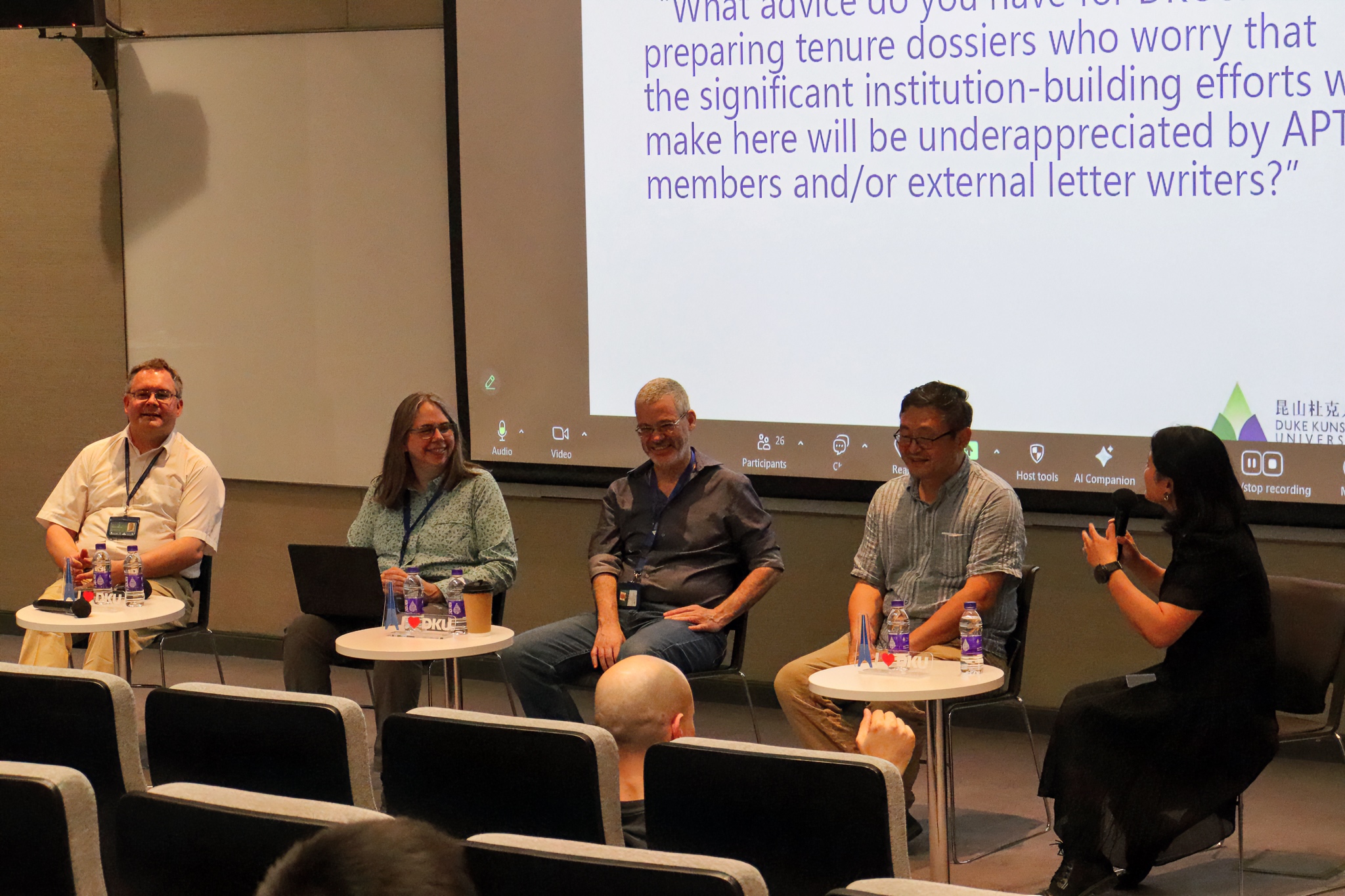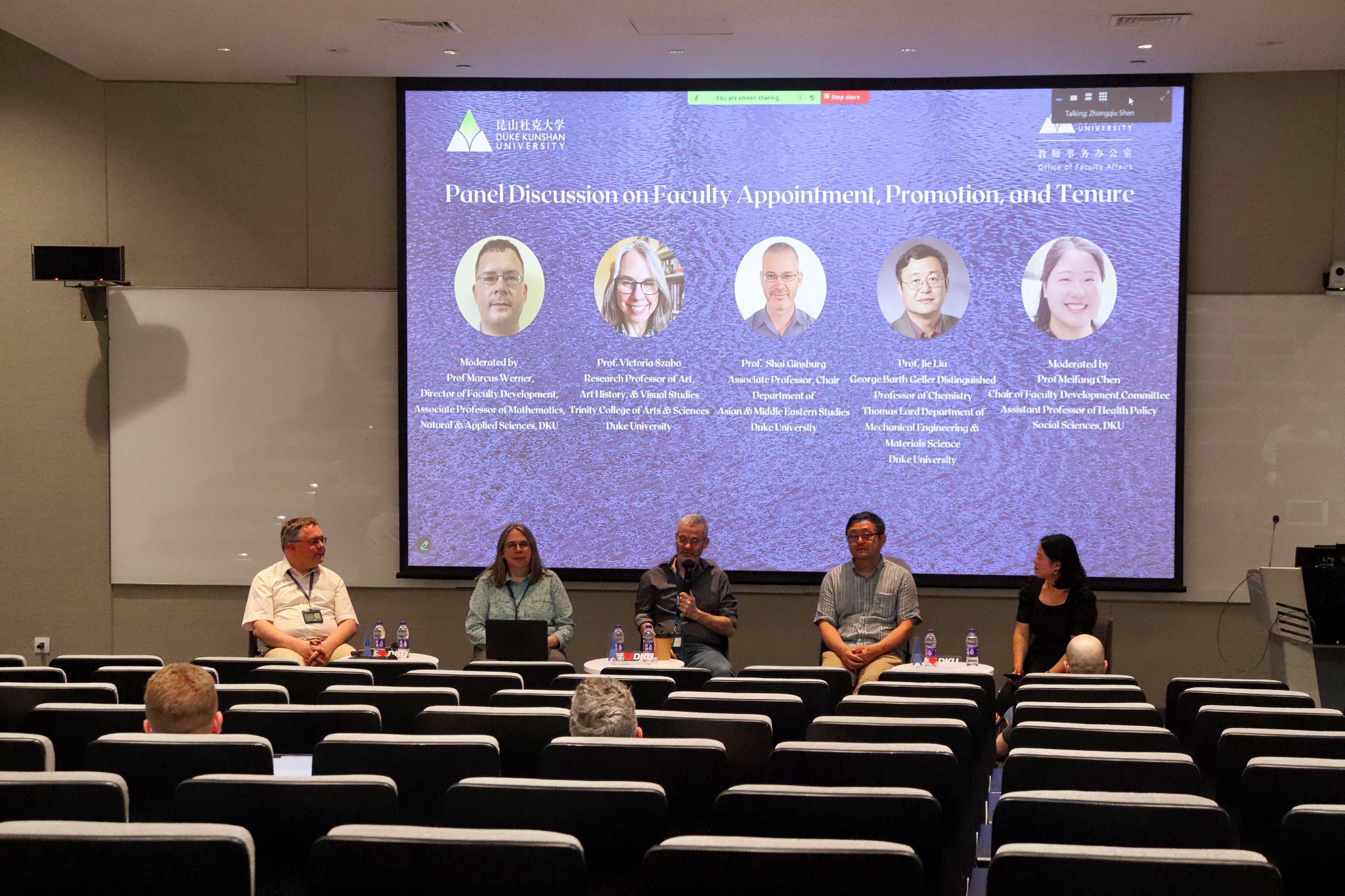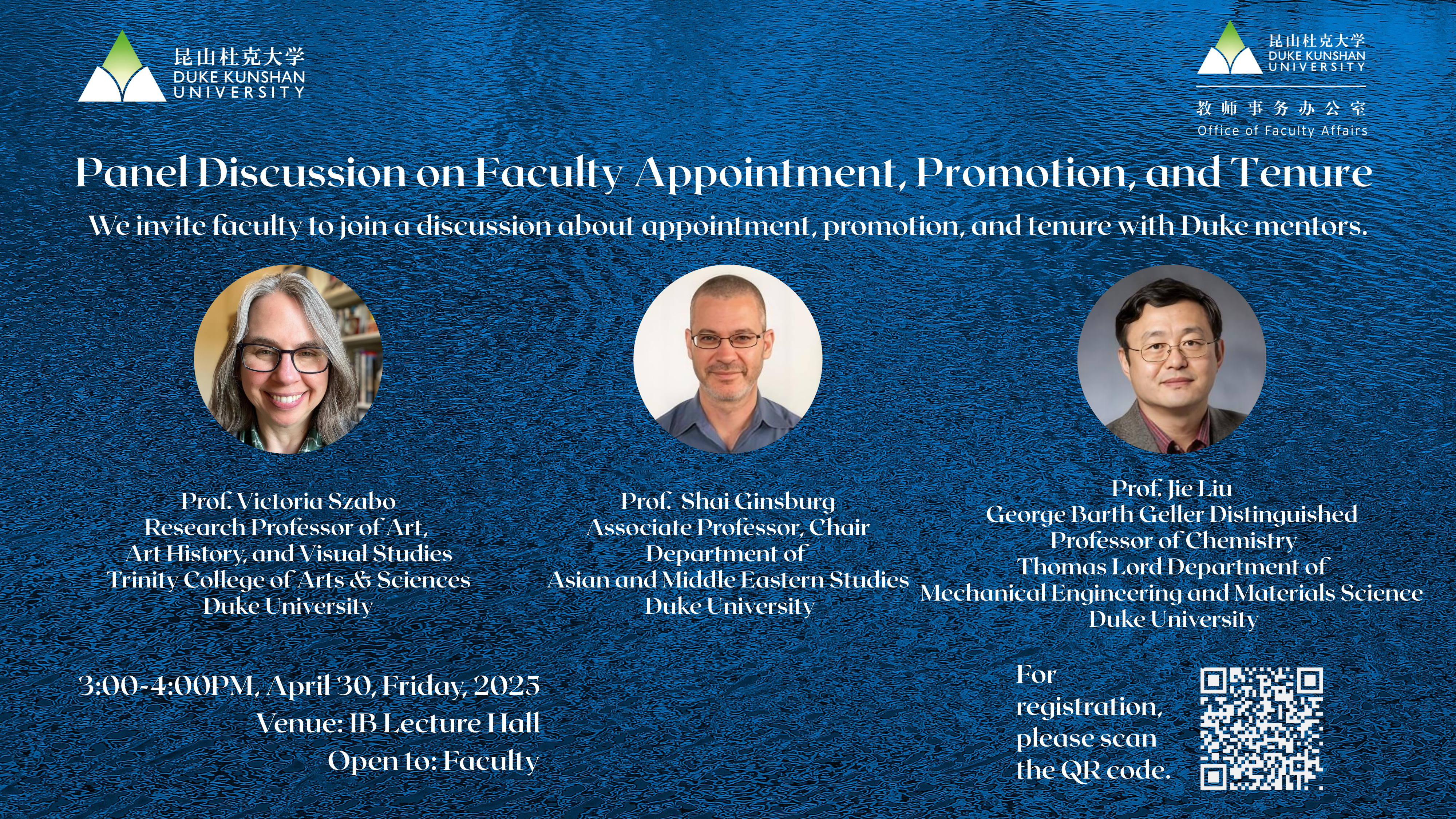The Panel Discussion on Faculty APT was co-organized by the Office of Faculty Affairs and the Faculty Development Committee. We invited distinguished faculty members from Duke University and DKU to share their insights into the academic appointment, promotion, and tenure process. The discussion provided valuable perspectives on institutional expectations, academic career planning, and the pathways toward tenure, with an overview of DKU’s own APT procedures.
Date: Wednesday, April 30, 2025
Time: 3:00–4:00 PM (CST/UTC+8)
Venue: IB Lecture Hall / Online via Zoom

Opening the Conversation on Academic Pathways and Tenure Process
On the afternoon of April 30, 2025, DKU hosted a timely and informative panel discussion on faculty appointment, promotion, and tenure (APT). The event, organized by the Office of Faculty Affairs, was part of DKU’s ongoing efforts to foster transparency, mentorship, and institutional learning across all career stages.
(Left: Prof. Marcus Werner, Director of Faculty Development, delivers the opening remarks.)
Insights from Duke Mentors: Practice, Policy, and Perspective
The highlight of the session was the panel discussion featuring three distinguished faculty members from Duke University:
Prof. Victoria Szabo
Research Professor, Art, Art History and Visual Studies, Trinity College of Arts & Sciences
Prof. Shai Ginsburg
Associate Professor, Chair, Department of Asian and Middle Eastern Studies
Prof. Jie Liu
George Barth Geller Distinguished Professor of Chemistry, Thomas Lord Department of Mechanical Engineering and Materials Science

Drawing from their own experiences and institutional roles, the panelists offered several valuable suggestions for junior faculty to support their professional growth and career progression. They encouraged junior faculty to attend important conferences in their subfield to network with other scholars and to consider inviting respected scholars for talks as a way to establish meaningful professional relationships. Additionally, junior faculty were advised to include a detailed plan for the next five years in their intellectual development statement, while also contextualizing their service contributions within this document. It was also recommended that they consult with their division chairs to identify appropriate letter writers for their tenure review and ensure their CV highlights their achievements in a manner comparable to peers at similar institutions.

The Q&A session invited thoughtful and specific questions from faculty attendees, Queries ranged from dossier preparation and external reviews to balancing academic duties with administrative responsibilities.
Concluding Reflections and Looking Ahead
As the session drew to a close, the moderators summarized key takeaways, reinforcing the value of clarity, preparation, and community in navigating academic milestones. It is emphasized to keep balance of teaching, scholarship, and service, and the importance of networking, collaboration, and strategic planning.
This panel marked another step forward in DKU’s institutional development, creating a shared space to voice challenges, exchange ideas, and foster mentorship. As DKU grows, events like this provide crucial scaffolding for building a supportive and transparent academic environment.

